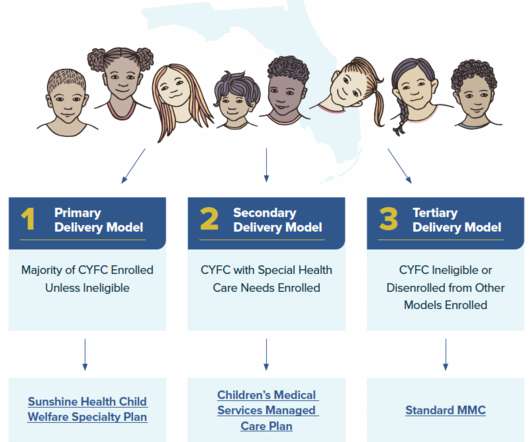Centers for Medicare and Medicaid Innovation Center: Equity and Vision
Sheppard Health Law
OCTOBER 27, 2021
Strategic Objective 1: Drive Accountable Care. The National Academy of Medicine reported that high-quality primary care forms the foundation of a high-functioning health system and is key to improving the experience of patients and care teams, as well as population health, and reducing costs. [1] FOOTNOTES. [1]












Let's personalize your content